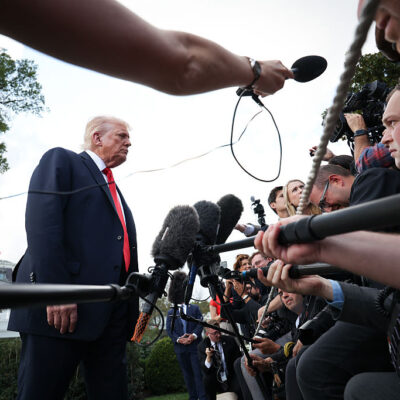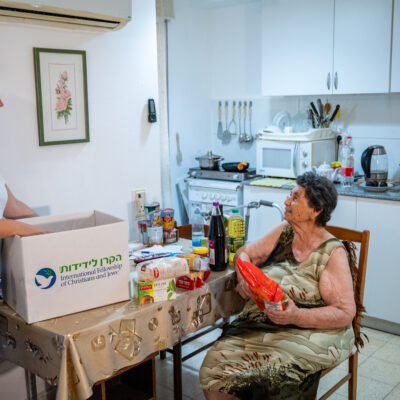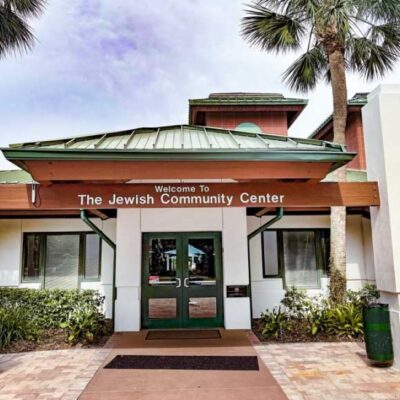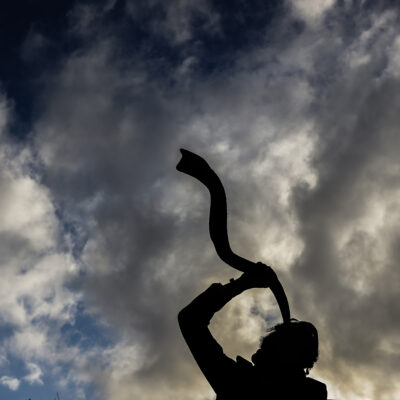APPLES FOR ROSH HASHANAH
Jewish Federations of North America funds efforts to rebuild farms, orchards in northern Israel
JFNA gives $1.15 million to restore over 230 plots of land that were damaged in Israel's war with Hezbollah
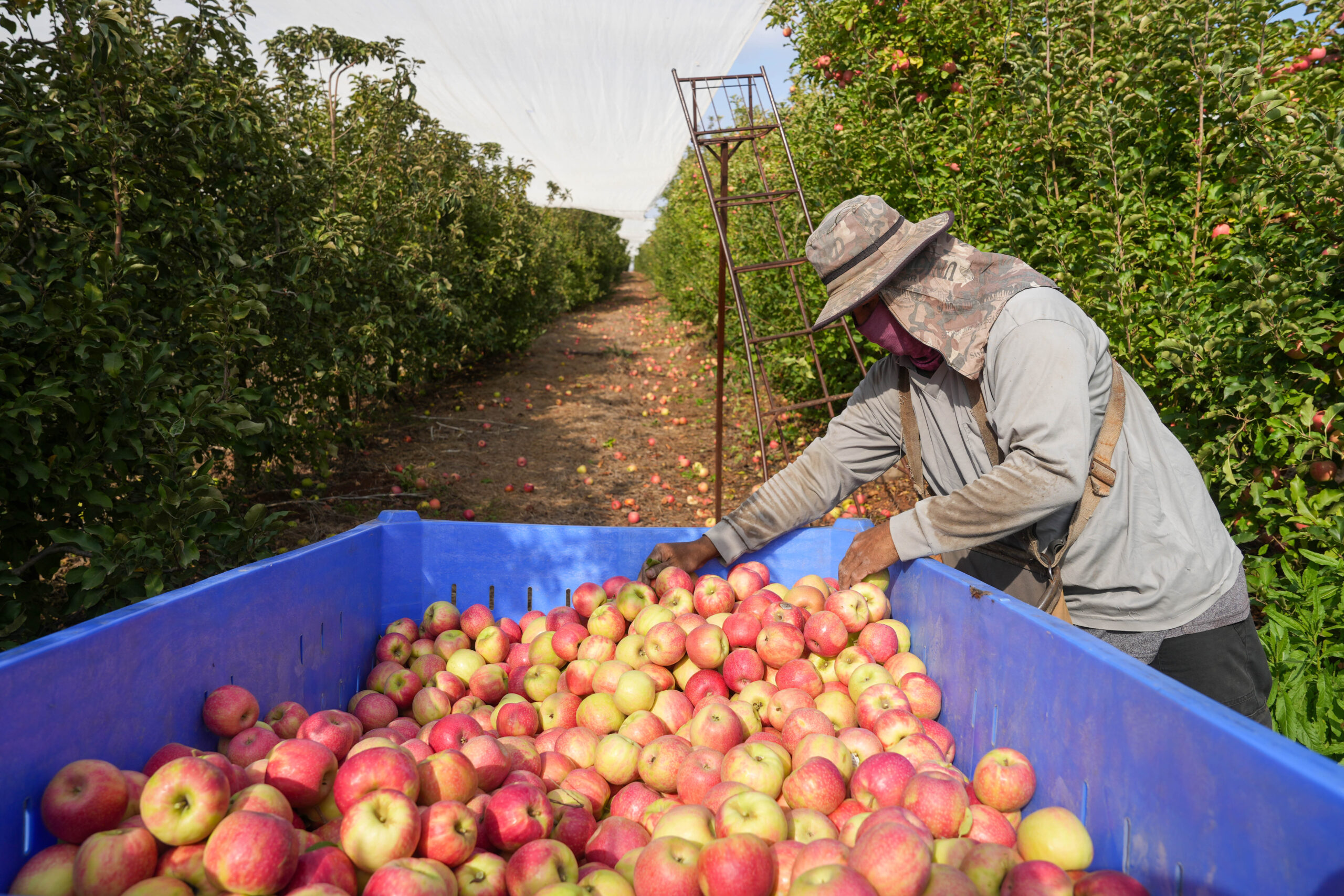
Ayal Margolin/Flash90
Workers pick Pink Lady apples in Kibuutz Malkia, on the Israeli border with Lebanon on Nov. 10, 2024.
When terrorist groups fire missiles into Israel, one of three things happens: they strike a populated area, they get intercepted by one of Israel’s missile defense systems or they land in an open area. When it’s one of the latter two, people generally breathe a sigh of relief. But not farmers.
“That open space is usually someone’s agricultural field,” Danielle Abraham, executive director of the Volcani International Partnerships’ ReGrow initiative, told eJewishPhilanthropy recently. “So the missiles cause direct damage. They often spark fires, which also cause more damage.”
Over the course of more than a year of attacks by the Lebanese Hezbollah terror group on northern Israel, there have been many such strikes on “open spaces,” causing more than $100 million in damage to local agriculture, according to a ReGrow study from earlier this year.
To address some of that damage, the Jewish Federations of North America, which first worked with ReGrow to assist farmers from the Gaza border area, has again partnered with the group to provide funds to northern Israeli farmers to replant their fields and orchards.
As a result of the partnership, 200 farmers will receive funds totaling $1.15 million to replant their fields that were destroyed and restore over 230 plots of land that were damaged in the war. Once revived, these orchards will yield at least 9 million apples annually. These are apples that had been missing from Rosh Hashanah celebrations across Israel since the war began.
Unlike farmers in the Western Negev — who only more recently started to return to their land — many farmers in the north never left, often putting themselves in danger for the sake of working the fields to ensure their survival.
Many farmers, like Paul Stahl of Kibbutz Bar’am, felt gratitude toward the volunteers who have continued to show up throughout the war. “The workers knew what they signed [on] for and they weren’t going to let the orchard fade away,” Stahl said. “They were willing to come and to work during the war. For the picking season, we had a lot of volunteers all around Israel that came to help us pick the fruit. And it was a heart-warming act. They gave us a lot of strength.”
Stahl also said there is no other choice but to regrow: “We have to do it to keep the business running. No one will wait for us in the markets if we don’t have food. We have to do it quickly.”
Volcani International Partnerships typically runs initiatives in other countries, but it decided to help at home.
“Before Oct. 7, our NGO was focused primarily on internationally sharing Israeli agricultural expertise,” Abraham said. “But I think at the moment we understood the kind of crisis facing Israel’s farmers at home, we knew we had to start working at home.”
Abraham added that “a lot of people, especially in the Diaspora, have this image of the pioneer that built the land of Israel, right in their historical imagination. They see them in the black-and-white photos trying to make the desert bloom. In one hand, they had the rifle and in the other hand, they had the hoe…
“And what I see in our farmers today on the borders is this unbelievable determination, courage and vision that they’re not going anywhere, that this is who they are. This is important for the state of Israel. So it’s just been an incredible privilege to be able to actually do something meaningful for our farmers at home.”
The search for a funding partner, she said, was not simple. “After Oct. 7, when we understood the scale of the agricultural damage in Israel, we reached out to Jewish philanthropies, and a common response that we got was, ‘Well, we don’t really do agriculture.’ Because it’s funny that even though Jewish philanthropy basically built the state of Israel with support for agriculture and the land and planting and tractors, we haven’t seen that kind of philanthropy for decades.”
JFNA, which has raised nearly $900 million for its Emergency Fund since Oct. 7, helped change that.
“The breakthrough grant also inspired others to join in the work of ReGrow,” said Rebecca Caspi, director general of JFNA’s Israel office and senior vice president of Israel and Global Jewry. “I think it really helped lift their visibility, and we were able to help make foundations and federation communities even more aware of their vision and their very high capacity to implement the vision.”
Caspi added: “So much of what Israel has achieved in the agricultural field is based on the groundbreaking science and the commitment not only to feed ourselves, but also so much of this knowledge and so much of what we’ve developed here is exported by Israel to the developing world and to the parts of the world that are challenged to grow under very dry conditions.
“And so I think that that is also part of the Zionist vision of how as a Jewish people we can help repair the world. And so repairing the damages at home is just a stepping stone to allow us to continue that work of improving our world.”
At a time of year when Israelis “give thanks and count our blessings,” Caspi said, it is extraordinary “to think about the tens of thousands of people all across North America who through their federations, are expressing their love and support for their brothers and sisters here in Israel, most of whom they will never meet. Fundamentally, we believe that we are all responsible for one another, and it’s a privilege to be part of a system that brings that belief to life.

 Add EJP on Google
Add EJP on Google